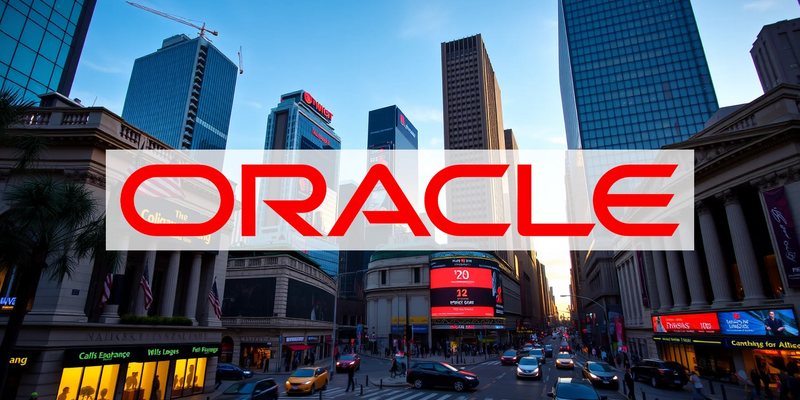Oracle’s AI Ambitions Face Scrutiny as Analyst Concerns Mount
26.11.2025 - 12:11:06The investment narrative surrounding Oracle has shifted dramatically in recent sessions, with the technology giant now confronting significant headwinds despite previously being hailed as a major beneficiary of the artificial intelligence revolution. A scathing analyst report has ignited concerns that management may have misrepresented the fundamental drivers behind the company's substantial backlog growth, raising questions about the substance of its celebrated OpenAI partnership and whether market enthusiasm has outpaced reality.
Beyond questions about growth sustainability, Oracle's financial position is drawing increased scrutiny. The cost of insuring against a potential default on the company's debt, as measured by Credit Default Swaps, has tripled, signaling growing unease among bond investors.
This credit market anxiety follows an aggressive capital raise executed in October, which has pushed the corporation's total debt load beyond the $100 billion threshold. These substantial borrowed funds are being directed primarily toward the costly expansion of AI infrastructure. However, market experts are increasingly skeptical that these massive capital outlays will generate returns swiftly enough to justify the financial risk. The simultaneous decline in free cash flow and the ballooning debt burden are creating significant pressure for the executive team to demonstrate tangible results.
Analyst Downgrade Questions Growth Narrative
The immediate catalyst for the erosion in investor confidence was a severe downgrade from analysis firm DA Davidson. Strategist Gil Luria slashed his price target substantially and leveled serious allegations that Oracle has been misleading its shareholder base.
Should investors sell immediately? Or is it worth buying Oracle?
The core accusation carries significant weight: while Oracle had implied that the massive increase in its Remaining Performance Obligations (RPO) stemmed from a diverse customer portfolio, Luria revealed that nearly the entire surge is attributable to a single client—OpenAI. He provocatively characterized Oracle as essentially a "pawn sacrifice" in a complex strategic game. Concerns are mounting that the much-publicized $300 billion contract may contain far less substance than initially projected, particularly as OpenAI simultaneously enters into trillion-dollar agreements with other infrastructure providers.
Technical Damage and Investor Exodus
These fundamental concerns have manifested in severe technical damage to Oracle's share price. Other financial institutions including Baird and KeyBanc have similarly retreated from their previous optimistic stances, reducing their price targets as the "AI sentiment evaporates." From a chart perspective, the equity is technically wounded: trading at €172.64, the shares have decisively broken below the critical 200-day moving average of €185.24. This breach represents a classical sell signal that typically accelerates downward momentum as institutional investors liquidate positions.
The critical question now facing market participants is whether Oracle can restore shattered confidence through greater financial transparency, or whether this episode marks the deflation of an AI-driven valuation bubble that expanded beyond reasonable fundamentals.
Ad
Oracle Stock: Buy or Sell?! New Oracle Analysis from November 26 delivers the answer:
The latest Oracle figures speak for themselves: Urgent action needed for Oracle investors. Is it worth buying or should you sell? Find out what to do now in the current free analysis from November 26.
Oracle: Buy or sell? Read more here...


